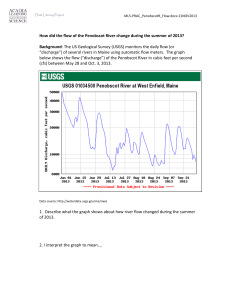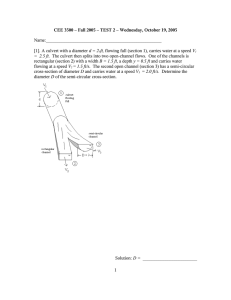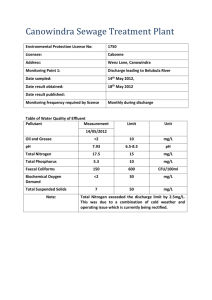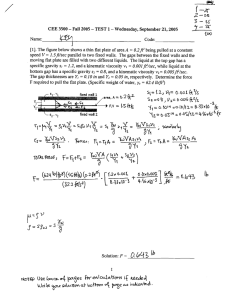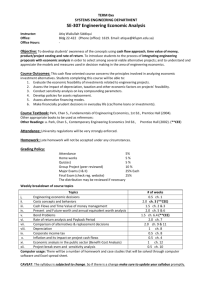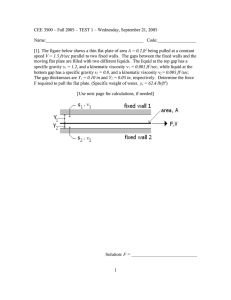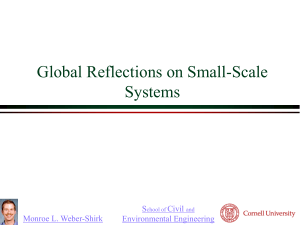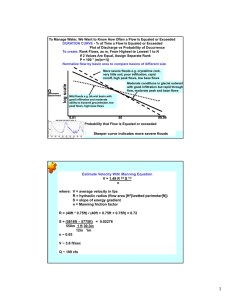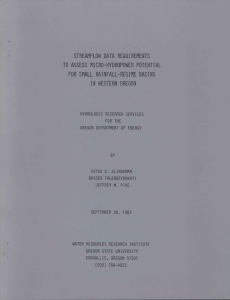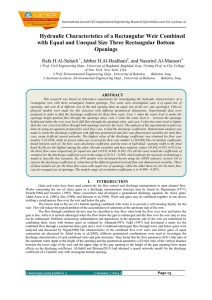CEE 3500 – Fall 2005 – TEST 3 – Friday,... Name:___________________________________________________ 1:25 37.5 ft
advertisement
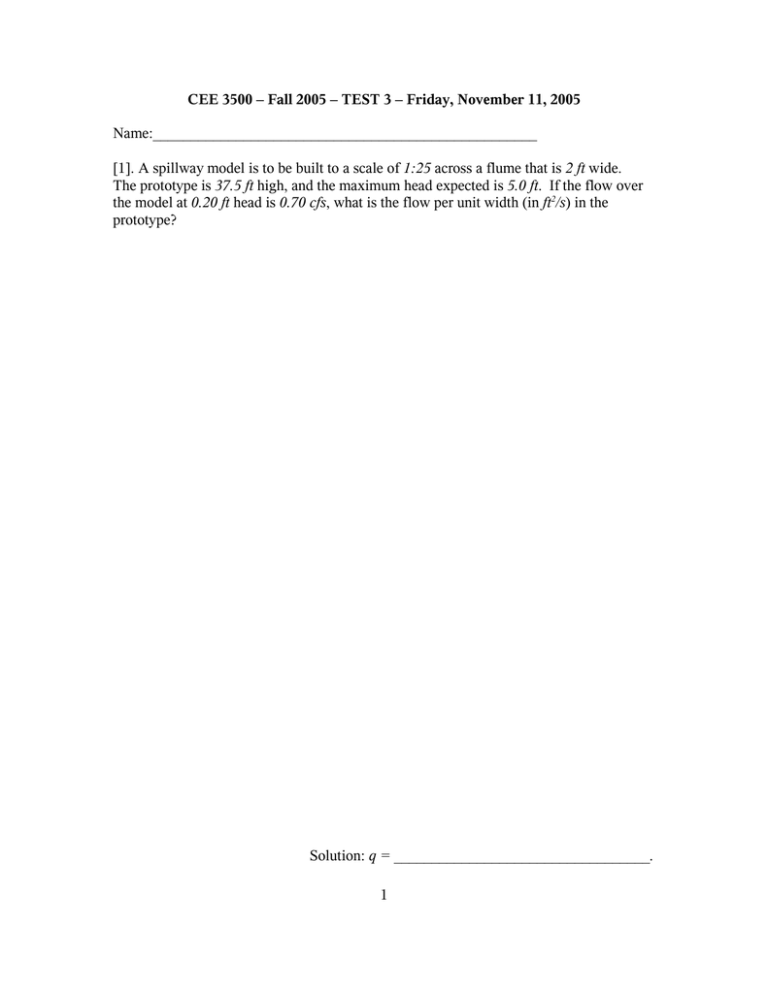
CEE 3500 – Fall 2005 – TEST 3 – Friday, November 11, 2005 Name:___________________________________________________ [1]. A spillway model is to be built to a scale of 1:25 across a flume that is 2 ft wide. The prototype is 37.5 ft high, and the maximum head expected is 5.0 ft. If the flow over the model at 0.20 ft head is 0.70 cfs, what is the flow per unit width (in ft2/s) in the prototype? Solution: q = __________________________________. 1 CEE 3500 – Fall 2005 – TEST 3 – Friday, November 11, 2005 Name:___________________________________________________ [2]. The discharge per unit length q = Q/B over a rectangular weir depends on the approach depth H and on the acceleration of gravity g. (Here, Q is the discharge and B is the width of the weir). First, using dimensional analysis, form a Π (Pi) term involving the parameters q, H, and g. Then, using the definition of the unit discharge, namely, q = Q/B, and making the Π term equal to a constant C,obtain an expression for the discharge Q. Solution: Q = _____________________________ 2 CEE 3500 – Fall 2005 – TEST 3 – Friday, November 11, 2005 Name:___________________________________________________ [3]. Water at 50oC flows from point A to point B through 200 m of 350-mm diameter cast iron pipe (e = 0.00061 m). Point B is 6.3 m above A, and the pressure at B must be maintained at 125 kPa. If the discharge through the pipe is 0.25 m3/s, what must be the pressure at A in kPa? NOTE: You can use the Moody diagram, Haaland's equation, or Swamee-Jain's equation to calculate the friction factor. Specify which method you selected for your solution. Solution: pA = ____________________________ f obtained using: [ ] Moody diagram [ ] Haaland's equation [ ] Swamee-Jain's equation 3 CEE 3500 – Fall 2005 – TEST 3 – Friday, November 11, 2005 Name:___________________________________________________ [4]. For the pump-pipeline-reservoir system shown in the figure the following data are provided: Q = 2.0 cfs, L = 1250 ft, D = 0.50 ft, e = 0.0001 in, Ke = 0.8, Kv = 1.8, and Kd = 1.0. The graph below shows the pump curve with hP(ft) and Q(cfs). Using SwameeJain's equation to calculate the friction factor, determine the value of the difference of elevation between the reservoirs' free surfaces, Δz. The flowing fluid is water at 60 oF. Solution: Δz = ____________________________ 4
